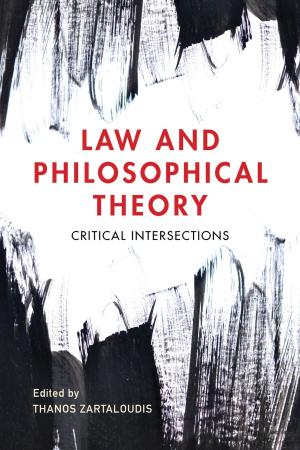The Radicalization of Pedagogy
Anarchism, Geography, and the Spirit of Revolt
Nonfiction, Social & Cultural Studies, Social Science, Human Geography, Political Science, International, International Relations| Author: | ISBN: | 9781783486717 | |
| Publisher: | Rowman & Littlefield International | Publication: | May 27, 2016 |
| Imprint: | Rowman & Littlefield International | Language: | English |
| Author: | |
| ISBN: | 9781783486717 |
| Publisher: | Rowman & Littlefield International |
| Publication: | May 27, 2016 |
| Imprint: | Rowman & Littlefield International |
| Language: | English |
How do activists learn radical politics? Does the increasing neoliberalisation of education limit the possibilities of transgressive pedagogies? And in what contexts have anarchist geographers successfully shaped alternative pedagogic practices?
Pedagogy is central to geographical knowledge and represents one of the key sites of contact where anarchist approaches can inform and revitalize contemporary geographical thought. This book looks at how anarchist geographers have shaped pedagogies that move towards bottom-up, ‘organic’ transformations of societies, spaces, subjectivities, and modes of organizing, where the importance of direct action and prefigurative politics take precedence over concerns about the state. Examining contemporary and historical case studies across the world, from formal and informal contexts, the chapters show the potential for new imaginaries of anarchist geographies that will challenge and inspire geographers to travel beyond the traditional frontiers of geographical knowledge.
How do activists learn radical politics? Does the increasing neoliberalisation of education limit the possibilities of transgressive pedagogies? And in what contexts have anarchist geographers successfully shaped alternative pedagogic practices?
Pedagogy is central to geographical knowledge and represents one of the key sites of contact where anarchist approaches can inform and revitalize contemporary geographical thought. This book looks at how anarchist geographers have shaped pedagogies that move towards bottom-up, ‘organic’ transformations of societies, spaces, subjectivities, and modes of organizing, where the importance of direct action and prefigurative politics take precedence over concerns about the state. Examining contemporary and historical case studies across the world, from formal and informal contexts, the chapters show the potential for new imaginaries of anarchist geographies that will challenge and inspire geographers to travel beyond the traditional frontiers of geographical knowledge.















